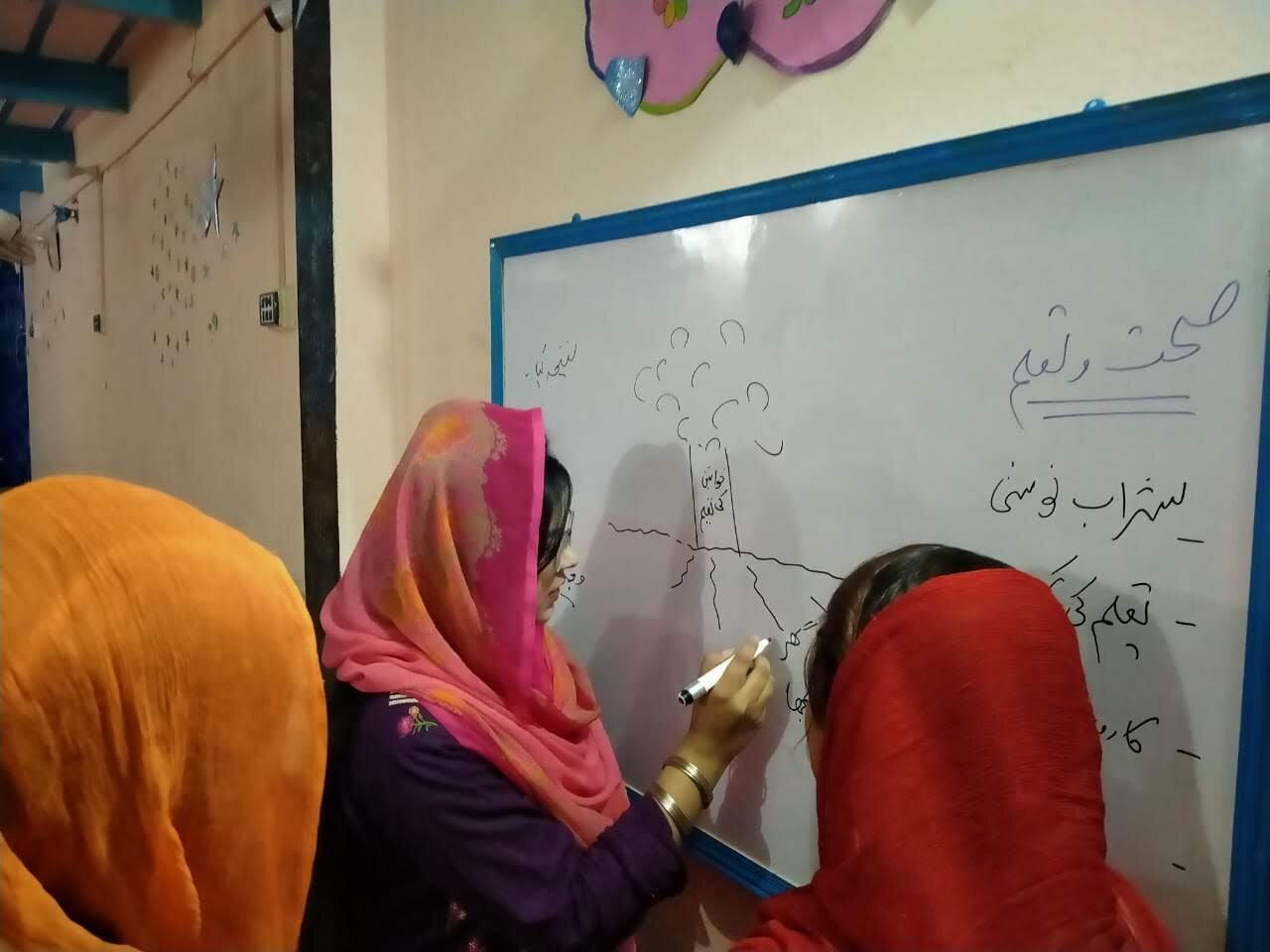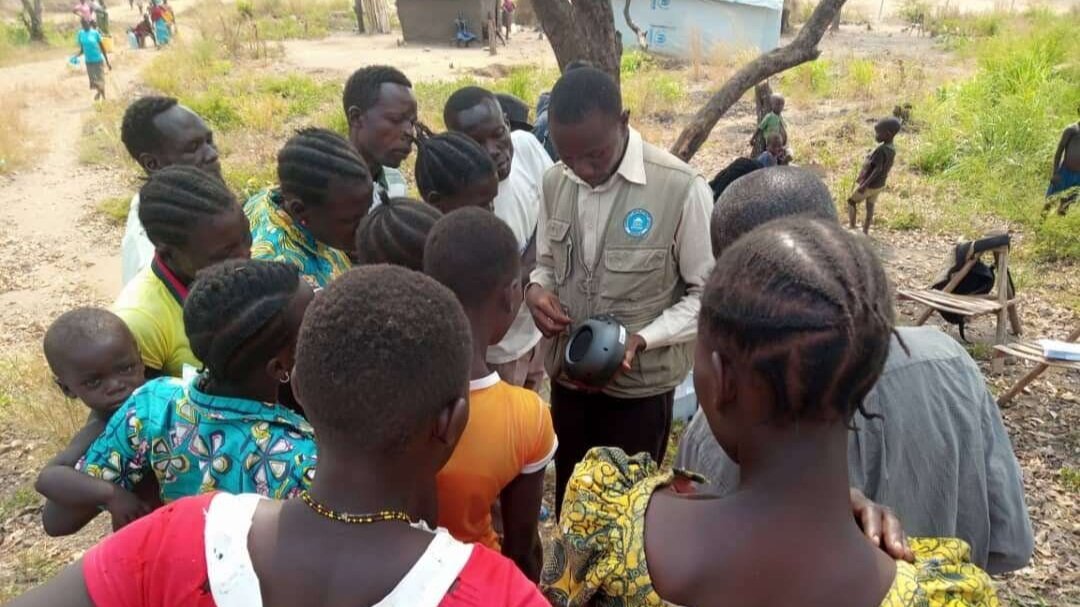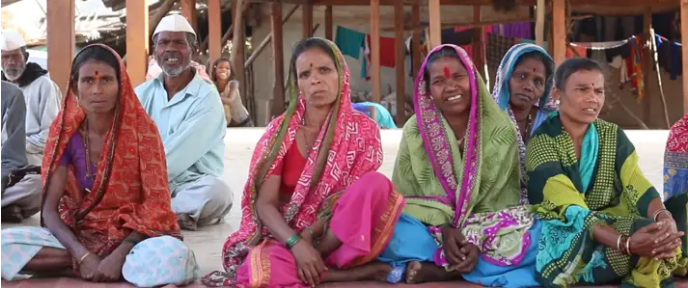Man with speakerbox, Omugo, Northern Uganda. Photo: CDC, 2019
Image: Amazon Echo Dot
Did you receive a Smart Speaker this Christmas? - or did you get one in the last two years? Voice activated speakers like the Google Home and Amazon’s Echo Dot (pictured) have triggered renewed interest in audio media and boosted the popularity of podcasts according to Reuters Institute. Reuter’s research reveals that, in an image- and video-rich media environment, we find many situations in daily life where we’d rather be hands-free AND eyes-free. We are telling our devices to play podcasts or stream music to fulfill this demand.
In some places where HCR partners are working, portable speakers with digital audio are key sources for information and entertainment, although voice activation is not yet so important! Increasingly HCR partners are using speakerboxes where there are legal, cultural or geographical restrictions on the use of FM radio, e.g. for South Sudanese refugees living in Uganda, or remote Adivasi people in India.
Speakerboxes can play digital content from files stored on an MicroSD memory card. They look and feel similar to the Smart Speakers. The main differences are that Speakerboxes cannot be controlled by voice commands, and can only play internet content if connected by bluetooth to a Smartphone. Both offer a new way for listeners to take control of the music and other audio content that they listen to.
While carrying out a baseline survey for the new Soot Semee project, a team from our partner, CDC, met this man listening to music on a speakerbox, similar to the type that CDC will distribute to vulnerable households in one of the South Sudanese refugee settlements. The man said that his neighbours gather in the evening to listen to the speakerbox with him. Barnabas from CDC told us. “When we asked if we could bring him our Soot Semee programmes [on MicroSD card] in January, he was super happy!”
Soot Semee content will include advice from local healthcare providers and community-based organisations and will play discussions, interviews and stories from the community members to boost community health, reduce gender-based violence, strengthening relationships with each other and with local Ugandan community members. It will further support peacebuilding by connecting listeners with the Hagiga Wahid rumour management project, to help listeners access reliable news from the settlement camps and South Sudan, and to help them disregard misinformation.
Speakerboxes awaiting distribution, CDC, Arua, Uganda
Soot Semee (Voice of Compassion in Juba Arabic) is part of this growing trend that is revitalising audio … and Soot Semee will be using audio to revitalise communities in Omugo Zone, Northern Uganda.












